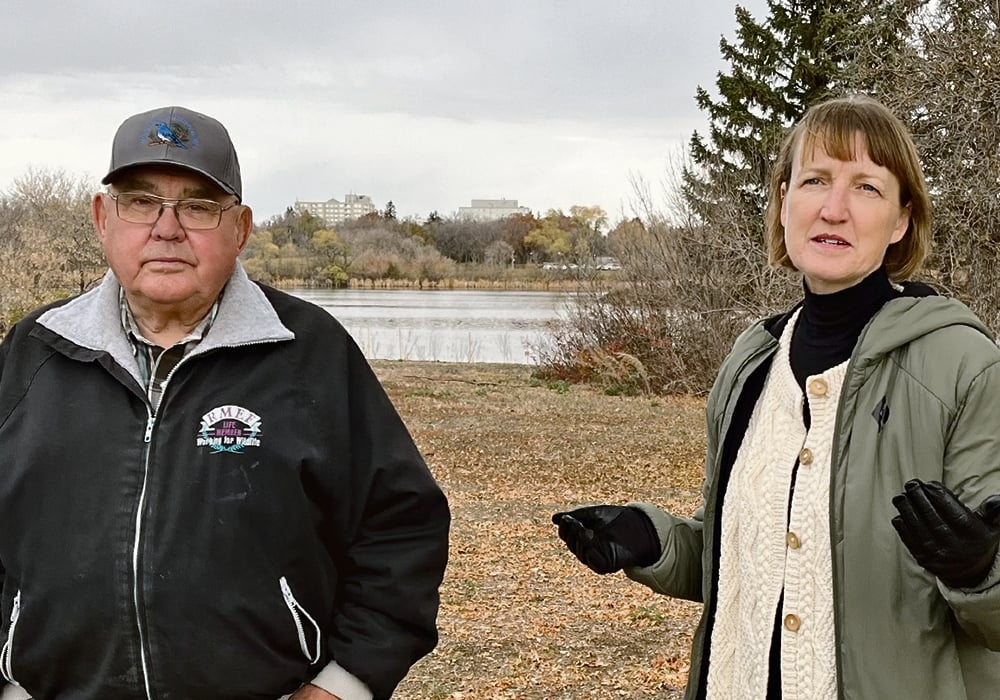Integrated land use
Content related to: Integrated land use
Response of Typha domingensis During an Accidental Discharge of High Cr(Vi) Concentration in A Full-scale Treatment Wetland
Are Floating Treatment Wetlands More Suitable for Retrofitting Highway Runoff Basins Than Vertical-Flow Treatment Wetlands?
Variation of Soil Organic Carbon Stability in Restored Mountain Marsh Wetlands
Extending the SUSI Peatland Simulator to Include Dissolved Organic Carbon Formation, Transport and Biodegradation - Proper Water Management Reduces Lateral Carbon Fluxes and Improves Carbon Balance
Yukon Wetland Field Guide Launch and Information Session
Not All Sanctuaries are Created Equal: Variation in Protected Area Selection by Wintering Mallards
Wetland advocates hoped Sask. election would talk water

Conservationist and farmer Lorne Scott and Kerri Finlay from the University of Regina are appealing to the Saskatchewan government for a wetland policy. | Karen Briere photo
REGINA — A group pushing for a wetland policy says it should have been a Saskatchewan election issue. Wetlands for Tomorrow includes scientists, farmers and conservationists.
Last week at a news conference near Wascana Lake in Regina, spokespersons said everyone should work together toward a common goal of water quality.
“The province of Saskatchewan really can’t afford to lose anymore wetlands,” said Kerri Finlay from the University of Regina.
Extensive wetland drainage has caused water quality issues throughout the southern part of the province, she said, and the problem is worsening every year.
Read the full news story here.

